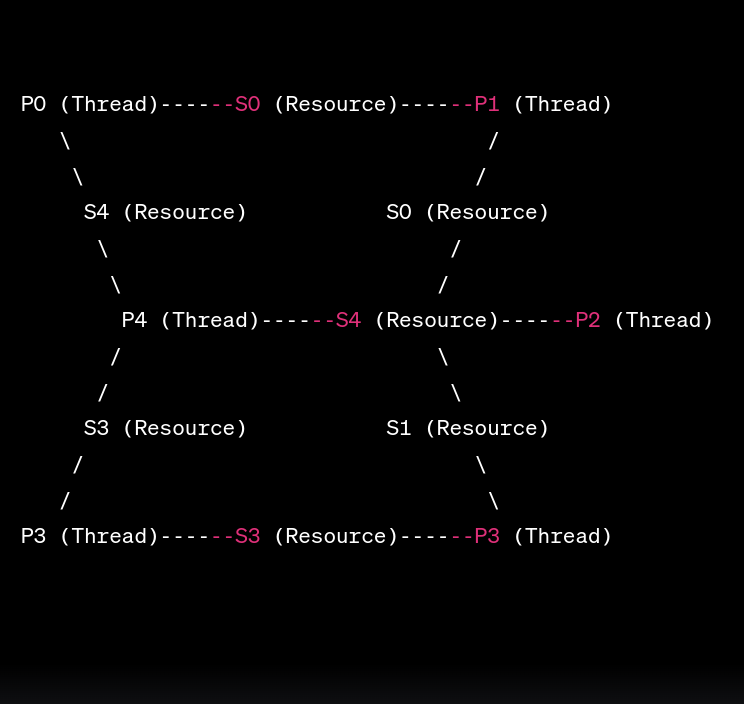
Dining Philosophers Problem: A Deep Dive 🍽️
Feel free to fork, star, or contribute to this project on GitHub. Any questions or feedback? Drop a comment below, and I’ll be more than happy to assist! 🙌 Until next time, happy coding! 👨💻👩💻
Welcome to my blog!
Today, we’ll be exploring the classic concurrency problem in computer science, known as the Dining Philosophers Problem.
If you’re passionate about algorithms, threading, and all things computer science, grab a coffee ☕ and read on!
Introduction 📚
The Dining Philosophers problem illustrates synchronization issues in concurrent programming. Imagine five philosophers sitting at a round dining table. Each philosopher thinks deeply 💭 and occasionally interrupts their thoughts to eat from a bowl of spaghetti. However, to eat, they need two forks. A fork is placed between each philosopher, meaning they must wait for their neighbor to finish before they can pick up the second fork.
The challenge: How do we ensure that every philosopher gets a chance to eat without causing a deadlock or race conditions?
The Algorithm 🖥️
In our solution, each philosopher is represented as a thread, and each fork is represented as a mutex lock. Philosophers must acquire two locks (forks) to eat. Let’s break down the logic step by step:
phil_get_right_spoon & phil_get_left_spoon 🥄: Determines which spoons (forks) a philosopher should try to acquire. The placement of philosophers and spoons ensures a unique approach to avoid deadlocks.
phil_eat 🍝: Once a philosopher has both spoons, this function ensures the philosopher eats (i.e., the critical section of code). We added assertions to validate that a philosopher is using the correct spoons.
philosopher_release_both_spoons 🔄: After eating, a philosopher releases both spoons, signaling other waiting philosophers that they can now attempt to eat.
philosopher_get_access_both_spoons 🔒: This function handles the logic of a philosopher trying to acquire both spoons. It ensures proper locking mechanism, thereby preventing potential deadlocks.
philosopher_fn 🧠: Represents the life of a philosopher – they continuously try to get both spoons to eat and then go back to thinking.
main 🌟: Initializes the resources (spoons) and launches the philosopher threads.
Concluding Thoughts 🌟
The Dining Philosophers problem represents real-world problems we face in computer science, especially when multiple processes or threads need simultaneous access to limited resources. The solution I showcased demonstrates how careful synchronization using mutex locks and condition variables can prevent potential pitfalls in concurrent programming.
